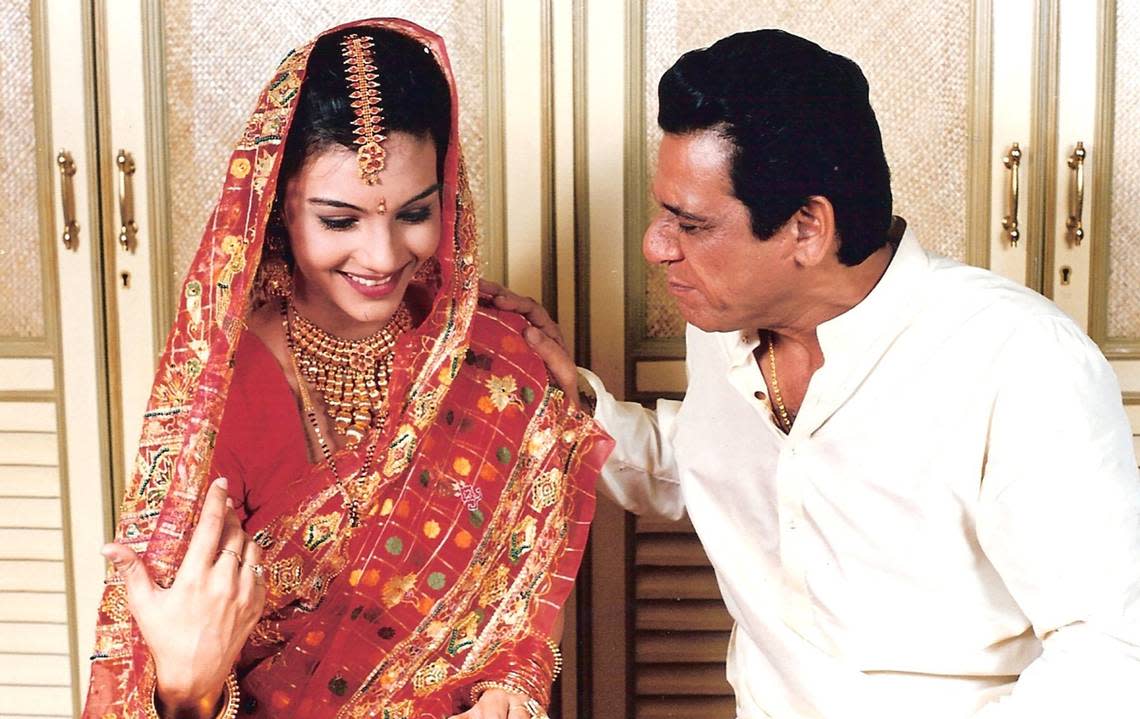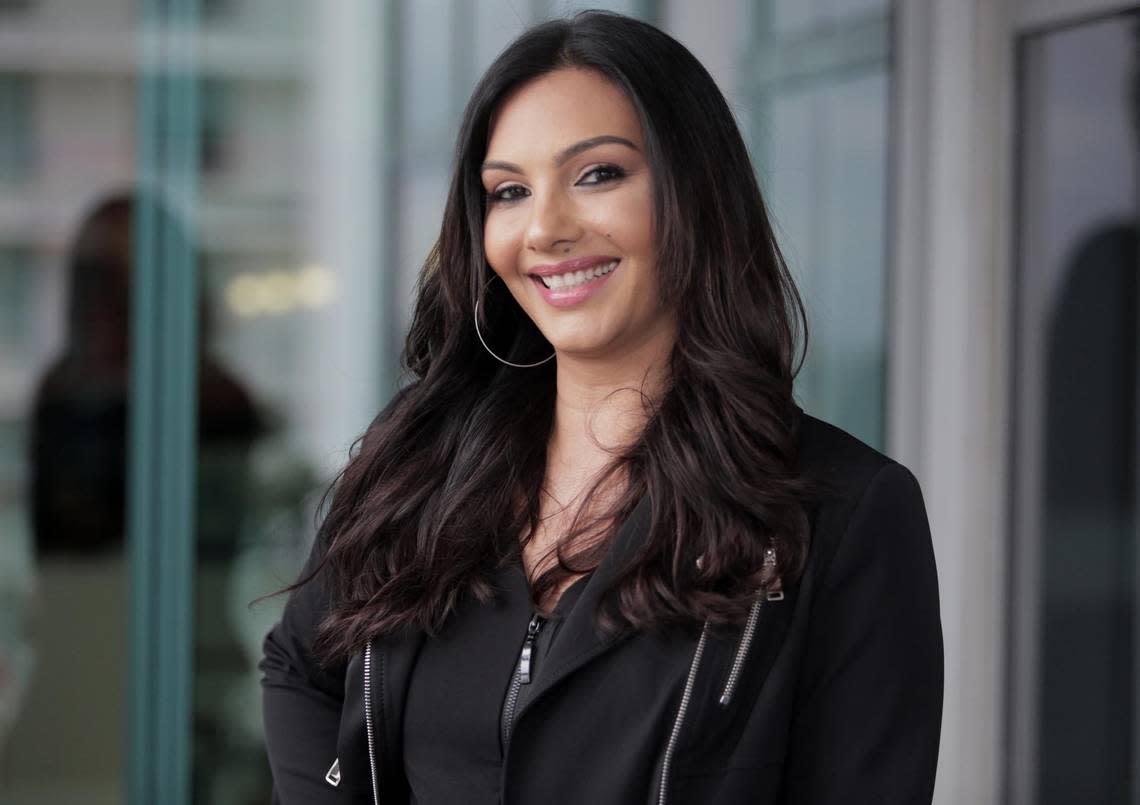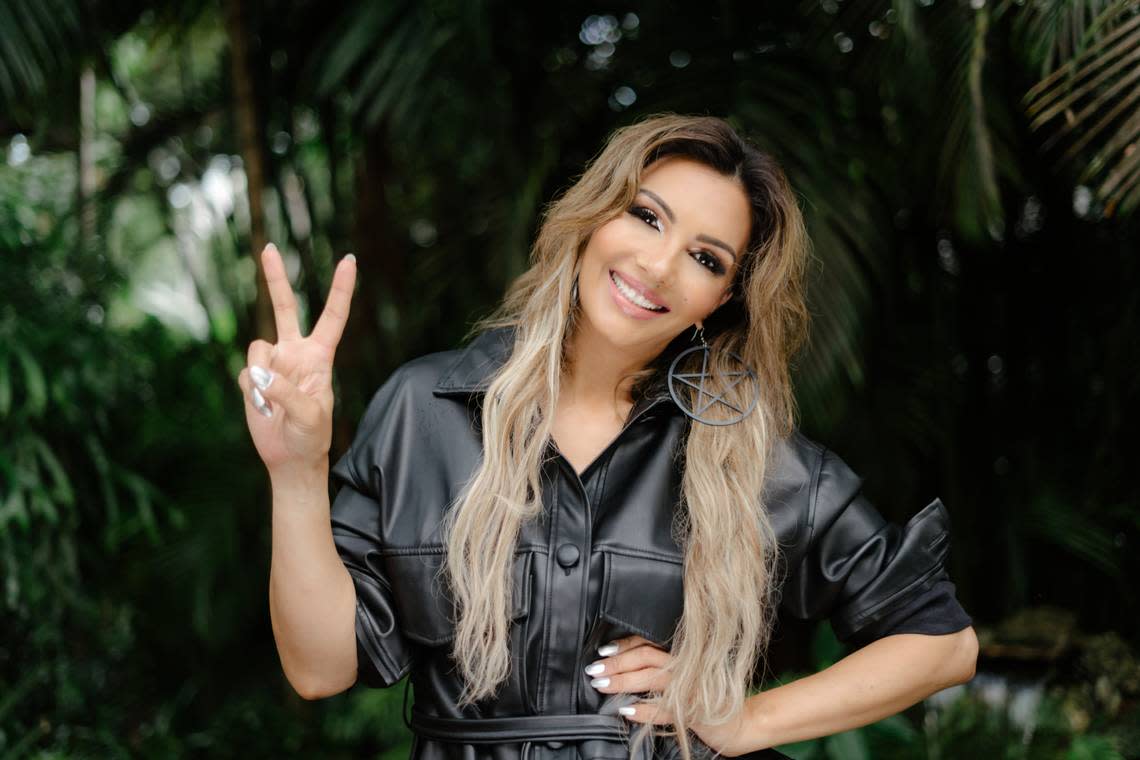‘Babies can’t be giving birth to babies.’ What now for young victims in a post-Roe world?
When the Supreme Court overturned Roe v. Wade, Somy Ali was taken back to being strapped to a table in a dingy one-bedroom apartment.
At 17, she visited the makeshift Mumbai clinic as a young Bollywood actress. She had been in a relationship with a big-name actor and ended up pregnant. But it was a secret — neither the paparazzi nor her family — could uncover.
Halfway through the procedure, her anesthesia wore off. She heard a suction-like sound coming from a tool that resembled a vacuum. She saw and felt everything around her. She wanted to move but couldn’t. She felt trapped in her body.
It was unpleasant. It was painful. But it’s what she chose.

Ali, now 46, is the founder of No More Tears, a Miami and Los Angeles nonprofit that works with victims of domestic violence, human trafficking and abuse. She said the overturning of Roe v. Wade in June challenges her efforts, especially in getting the most vulnerable victims — young girls — access to safe abortions.
More than 2,500 pro-life pregnancy centers nationwide offer counseling to expectant mothers to lead them away from abortion and help with their pregnancies. But Planned Parenthood clinics across Florida have grappled with an influx of women and girls from other states, mostly in the South, said Laura Goodhue, executive director of Florida Alliance of Planned Parenthood Affiliates. Clinics used to provide 25 to 30 abortions a day, but now, that figure is closer to 70.
Most women who travel to Florida for abortions have the means to do so, Goodhue said. She can’t imagine what a young girl in a terrible situation would do.
Ali bawled when she heard about the Supreme Court’s decision. What will happen to the girls she fights so hard to protect?
“This is insane,” she said. “I can’t believe that you can get an abortion in India, but you can’t get an abortion in America.”
READ MORE: Zero regrets, deep regrets. How an abortion decision shaped the lives of three Floridians
Young girls and mental health issues
Ali’s motivation comes from her own trauma. She grew up in a home filled with domestic violence. She was sexually abused by house help when she was 5 and 9. At 14, she was sexually assaulted by a man three years her senior in a North Miami park.
“Taking all of the trauma, I just tried to bring something good ... out of it,” she said.
The victims Ali works with are usually around 12 and 13 but have been as young as 9. Some were impregnated by traffickers, but most have been impregnated by their fathers and other male relatives.
Child sexual abuse that results in pregnancy is a double trauma, said Maureen Kenny, a psychology professor at Florida International University. The trauma can mess up the child’s development, mentally and physically.
“Pregnant and carrying a baby at 10, it disrupts your whole development,” she said. “So, what happens with going to school? ...You’re no longer on that developmental trajectory right now. You’re a mother at 10 or 11.”
Many child sexual abuse victims suffer from anxiety, depression and trauma reactions, such as flashbacks, nightmares, and fear of certain people and situations, Kenny said. Cases of abuse by people the child trusts, like family members, can breed even more severe issues.
“If the abuser is known to you, so it’s a family member, think about what that does for trusting relationships,” she said. “This is somebody that was supposed to care for you, be a role model, love you.”
A young victim of abuse may find it traumatic to carry a baby to term, Kenny said. She pointed to the case of a 10-year-old girl who recently traveled from Ohio to Indiana to get an abortion. Ohio outlawed abortions after six weeks with no exceptions. The man accused of raping the girl was arrested on July 13.
“If you’re at an age where you have no understanding of sex, the sexual abuse is their education into sex,” she said. “That’s not the best way to learn about sex or sexuality because they’re learning about coercion and manipulation and non-consent.”
While Kenny said she hasn’t dealt with cases of abuse that resulted in pregnancy, she believes these girls should have access to abortions.
“It’s not that it’s impossible that people can embrace a child of rape. That does happen,” she said. “But I don’t think that that’s for everyone.”

Financial woes threaten abortion access
With restrictive abortion laws in many states, Ali said she will look into ways to take the girls to other states — whether they’re pregnant from sexual abuse or human trafficking. Florida’s 15-week ban, for instance, doesn’t make exceptions in cases of incest, rape or human trafficking.
“We’re headed towards the death of these 11-year-old girls,” she said. “And it’s despicable to even say that out loud, let alone have it as a thought.”
Ali’s concern isn’t only paying for an airplane or bus ticket, however. Traveling will require a hotel stay, food, clothing and therapy after the procedure. And the cost will double because she will accompany the child. She’s always there to hold the girl’s hand at the clinic.
No More Tears’ budget doesn’t only get victims access to abortions.
Through her nonprofit, Ali said she has rescued 35,000 men, women, children and pets from abusive environments. She said children, especially those sexually abused at home or kicked out for being LGBT, are vulnerable to being trafficked.
She’s in the process of sending a 17-year-old trafficking victim back to her home country of Jordan. In her two years in Los Angeles, the teen was sold 30 times every day for $35 to $40.
Besides the emotional toll of the job, Ali has faced dangerous situations. She has had traffickers point guns at her head. And she doesn’t take a salary for any of it.
Ali lives on rental income from her three properties in South Florida. And she said she would dip into her savings to help the victims have access to an abortion. She’ll do whatever it takes.
“Is it time for us to bring out the hangers again? Is that where we’re going?” she said. “It looks like that’s where we’re headed.”
Religion, culture and barriers
With an Iraqi and Pakistani Muslim background, Ali understands the cultural and religious constraints some of the women and girls face. She often has to put up a fight against culture and religion — especially when it comes to abortion.
In her 15 years doing this work, Ali has engaged in hours of cultural and religious sensitive conversations with families of victims in the Hispanic, Haitian, Middle Eastern and South Asian communities across the country.
“I get where they’re coming from, where their faith is so strong,” she said. “But when it’s the matter of your child’s life, you have to realize this is crazy.”
READ MORE: Yes, no and ‘nuanced’: What Miami religious leaders are saying about Roe v. Wade ruling
She once dealt with a case where an 11-year-old got pregnant by her father. The girl’s mother viewed the pregnancy as a gift from God. But Ali sat down with the mother and explained that doctors said her daughter could die during childbirth because her body wasn’t fully developed.
“That’s not an age for you to be a mom,” Ali said. “You’re a baby yourself, and babies can’t be giving birth to babies at the risk of dying ... or losing your entire future.”

Her three-hour talks with mothers happen in the victim’s home or at Planned Parenthood. She has learned how to address the family’s reservations — and credits her Bollywood career for her success.
She shares the stories of her abortions, switching her age with the victim’s, and tells them how different her life would’ve been if she hadn’t undergone the procedure. And then she starts posing questions.
Would you rather your daughter die than have a productive life? Go to high school and college? Become a doctor or lawyer? Get married and have children at the right time?
That’s when most mothers realize that they’re making the best decision for their child’s future. Some break down in tears, and if they’re at the clinic, Ali escorts them outside to cool down.
With her compassion, Ali will do everything possible to support the young girls. She will continue to hold their hand through the process — even if it means flying to a different state.
“I’m very empathetic,” she said. “I have been abused many times, and I understand what abuse and trauma is. You don’t get over trauma. .... It takes years and sometimes you just never get over it. I’m still in therapy for being raped and sexually abused as a child.”
